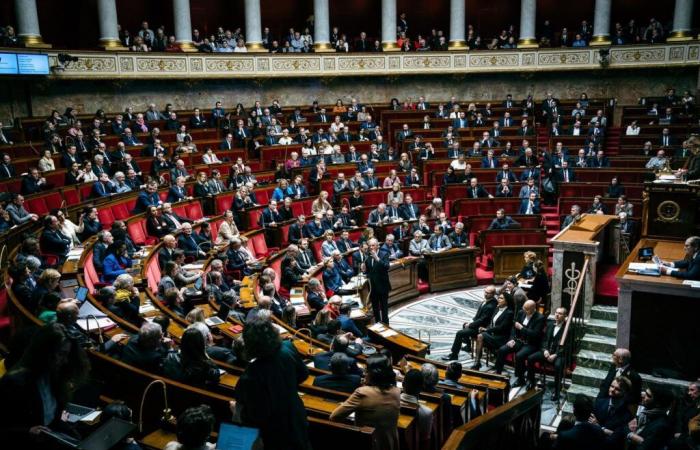
The Cross : As a historian, what is your view on the current political crisis? Is it new?
Mathias Bernard : We are indeed in a type of crisis that is very rare in the political history of contemporary France. Until now, only one government had been overthrown by a motion of censure under the Fifth Republic, that of Georges Pompidou, on October 5, 1962. The National Assembly had opposed the reform of the Constitution establishing the election to the direct universal suffrage of the President of the Republic. But there was no question of bringing down a government during a budget vote. This is precisely what amplifies the current crisis, which is taking place even though a budget had to be voted on to ensure the continuity of the State on January 1, 2025. The other new element is that an exit from the crisis seems difficult to find. Until next June, the President of the Republic cannot dissolve the National Assembly, as Charles de Gaulle did in 1962. His only solution is to change the Prime Minister and the majority. But as we have seen, there is no majority!
France has already experienced such situations of absence of a majority in Parliament, notably under the Fourth Republic. What lessons can be learned from this?
M. B. : There are many similarities between the Fourth Republic and the current political disaster, such as the splitting of the political landscape between three large blocs. With one notable difference: a certain culture of compromise continued under the Third and Fourth Republics, making it possible to form coalitions. It sometimes took time to form governments, but these majorities managed to govern together for several months. The parliamentary groups ended up reaching agreements between themselves. France has unfortunately lost this logic of compromise. Since 1958, the French political system has become accustomed to a bipolar system of alternation between right and left, which functioned without too much difficulty until the emergence of macronism in 2017. We currently find ourselves at risk of void of power.
How can we return to this culture of coalitions?
M. B. : The priority is to learn lessons from the message sent by the French during the early legislative elections of June-July. It was not the New Popular Front (NFP) which won in the second round, nor even the National Rally (RN). It is the Republican front, or the refusal of a majority of voters to see the RN come to power. In normal political logic, the government should correspond to this political line. However, we can clearly see that a regrouping, even for a short period, of the NFP and the central bloc around a common program seems impossible. This is mainly due to the political parties' obsession with the presidential election. None of the major groups present have any interest in giving the impression of making a pact with those who will be their adversaries in 2027. For me, the role of the presidential election is too central in French political life. One way to remedy this problem would be to eliminate the voting method by direct universal suffrage. We could return to a President of the Republic elected by parliamentarians or by electors, as is the practice in other countries.
Would this not weaken the presidential office?
M. B. : But this has already diminished considerably! When we compare the exercise of power of Nicolas Sarkozy, François Hollande and Emmanuel Macron, with that of Charles de Gaulle and Georges Pompidou, we clearly see that our current presidents are less able to assert their political authority. This is probably because they find themselves too much on the front line. The presidents of the Republic began to take care of everything and to be considered responsible for the slightest crisis, instead of placing themselves above parties. I am convinced that a voting method other than universal suffrage would give them a much more arbitral function, and would allow them to once again become the keystone of the Republic. Today, they govern, even though that is not their job. This confusion with the role of the Prime Minister, perceptible for around thirty years, is not desirable for the proper functioning of institutions.
Should other institutional reforms be carried out, in your opinion?
M. B. : A second avenue put forward by a certain number of elected politicians would be to introduce a dose of proportionality in legislative elections. The interest is that each party can compete under its own colors, with its program, before deciding at the end of the elections with whom to ally. In our system of a two-round majority vote, political forces are obliged to join forces in the second round – and sometimes even from the first round – which then blocks them from the alliance to which they committed before the voters. This is what makes it, for example, impossible today for the Socialist Party and the Ecologists to participate in a government without La France insoumise. This change does not require fundamentally transforming the Constitution, but rather enacting new electoral modalities. We could therefore do it while remaining in the Fifth Republic.
Is there still hope for the future?
M. B. : Yes, I am optimistic about our ability to find a culture of compromise and emerge from this crisis. Let us remember that, in the 1930s, France experienced violence, linked to the rise of the extreme right and Bolshevism, much more difficult than that visible today. Our political system is capable of overcoming all of this. But on condition of keeping in mind a fundamental question, that of respecting the results of the ballot boxes. There must be a clear political response to what was expressed by the sovereign people during the last legislative elections.





